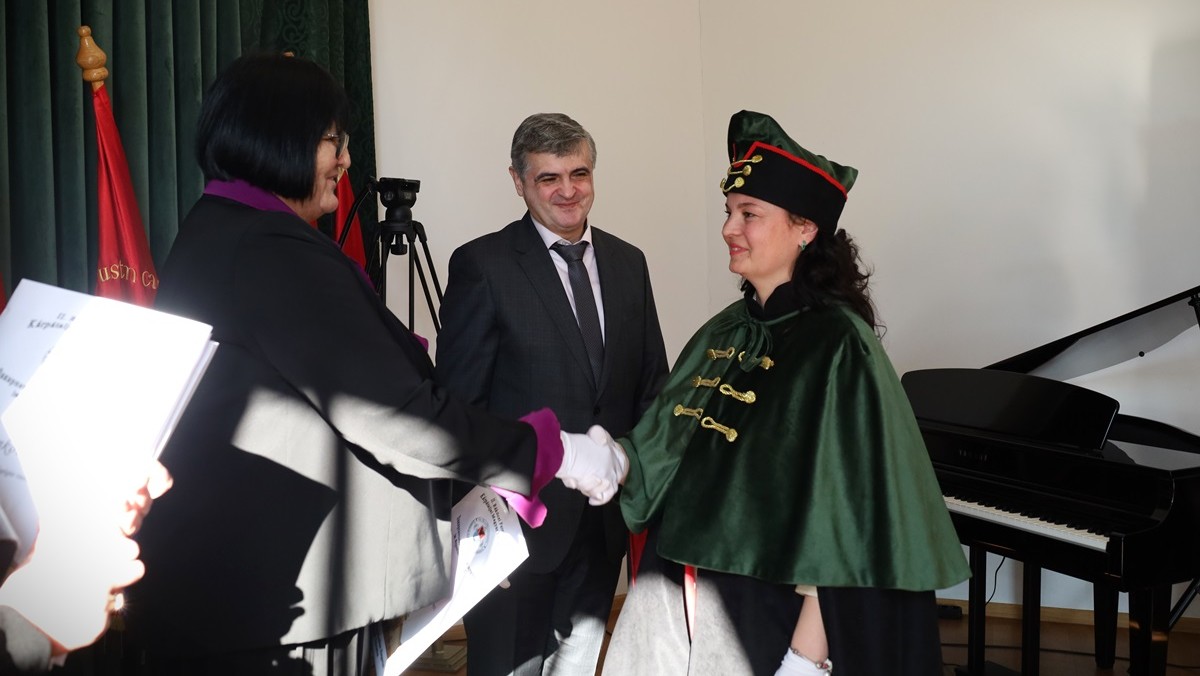Graduation ceremony at the Rákóczi College
The graduation ceremony for students of the faculties of Education and Pedagogical Sciences, as well as Accounting and Taxation, of the Ferenc Rákóczi II Transcarpathian Hungarian College of Higher Education took place at the Perényi Cultural Mansion. Fifteen students who completed their master’s program with a cross-semester received their diplomas, certifying their qualifications, on February 10, following successful state exams and accreditation.
At the beginning of the event, Imre Holozsi, a teacher at the Tulipán Tanoda Hungarian School of Folk Music and Folk Art, gave a performance of the Hungarian folk song Elindultam szép hazámból. He was accompanied by Bertalan Halász, a teacher at the Tulipán Tanoda, playing the accordion.
Following the greetings to the participants, our national prayer was sung, and the anthem of the Rákóczi College was performed.
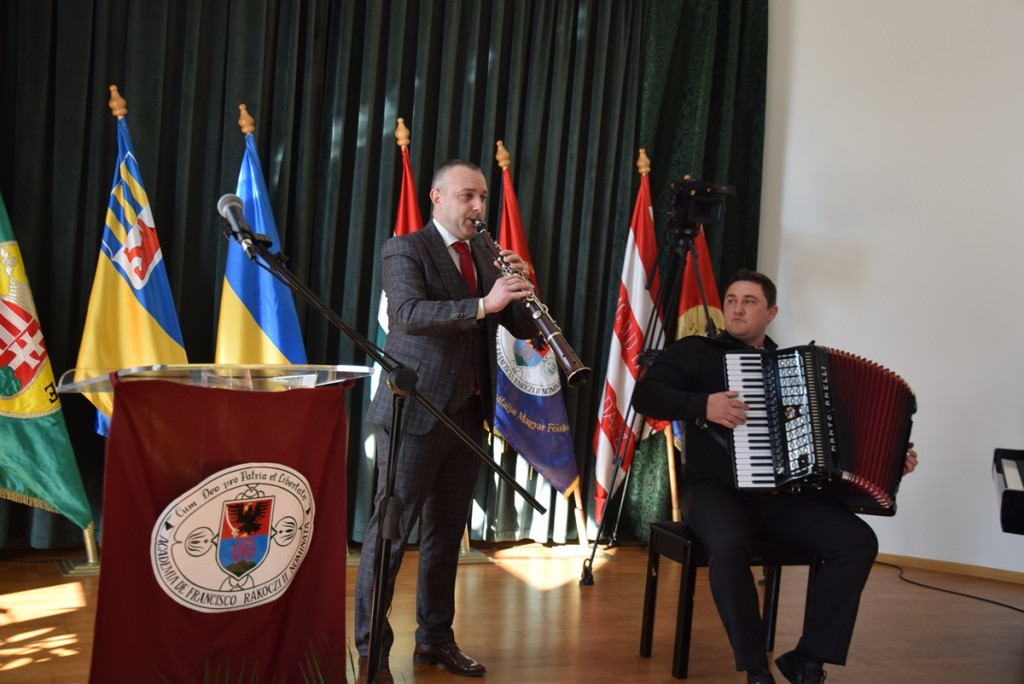
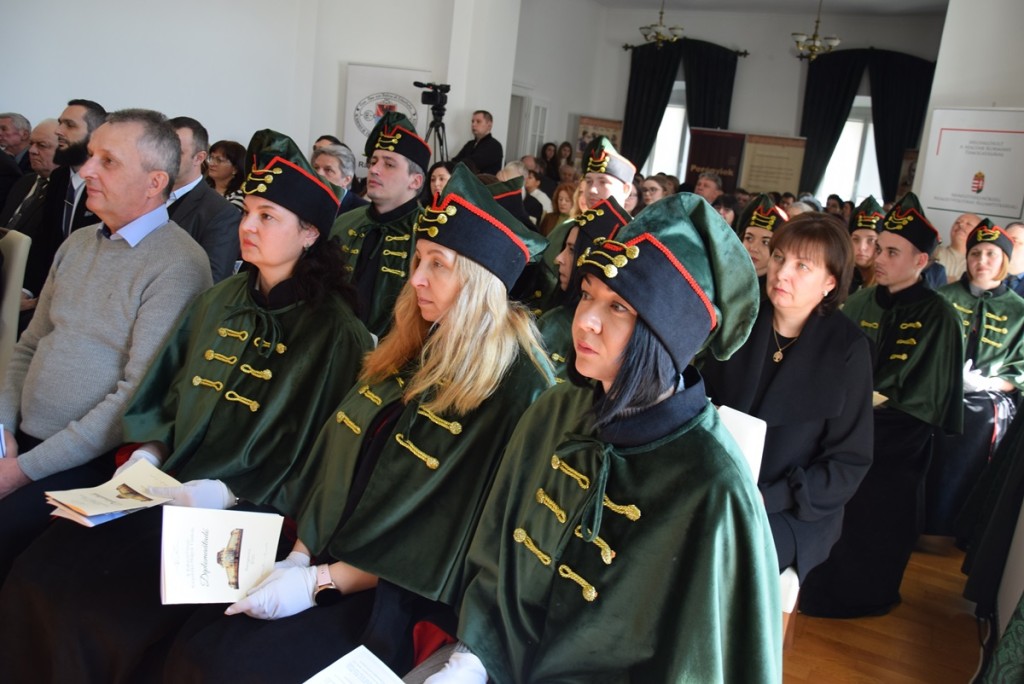
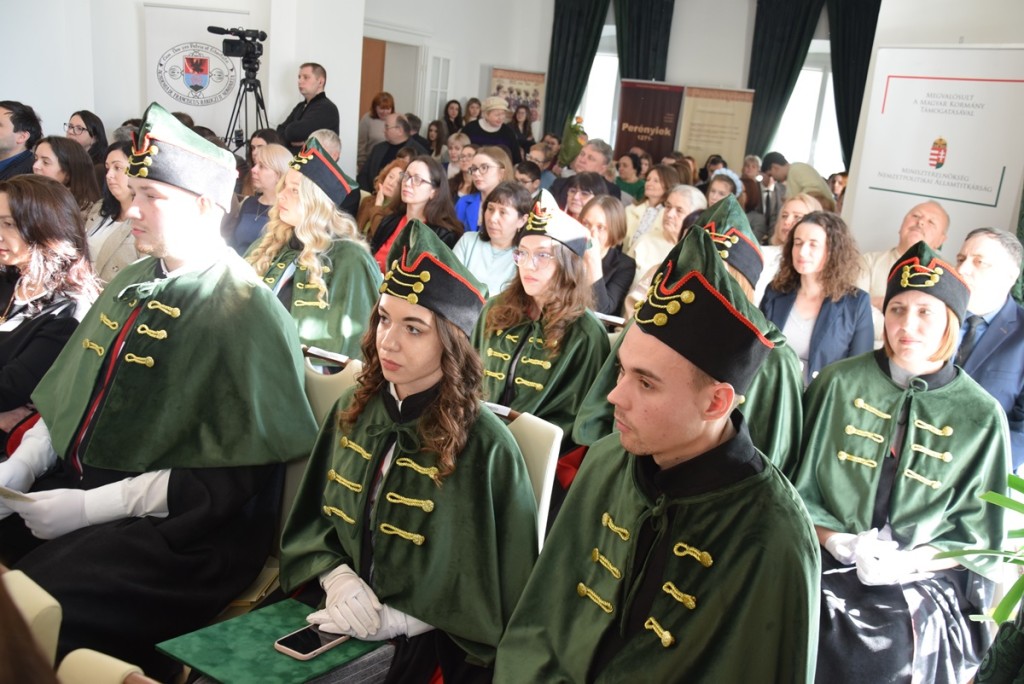
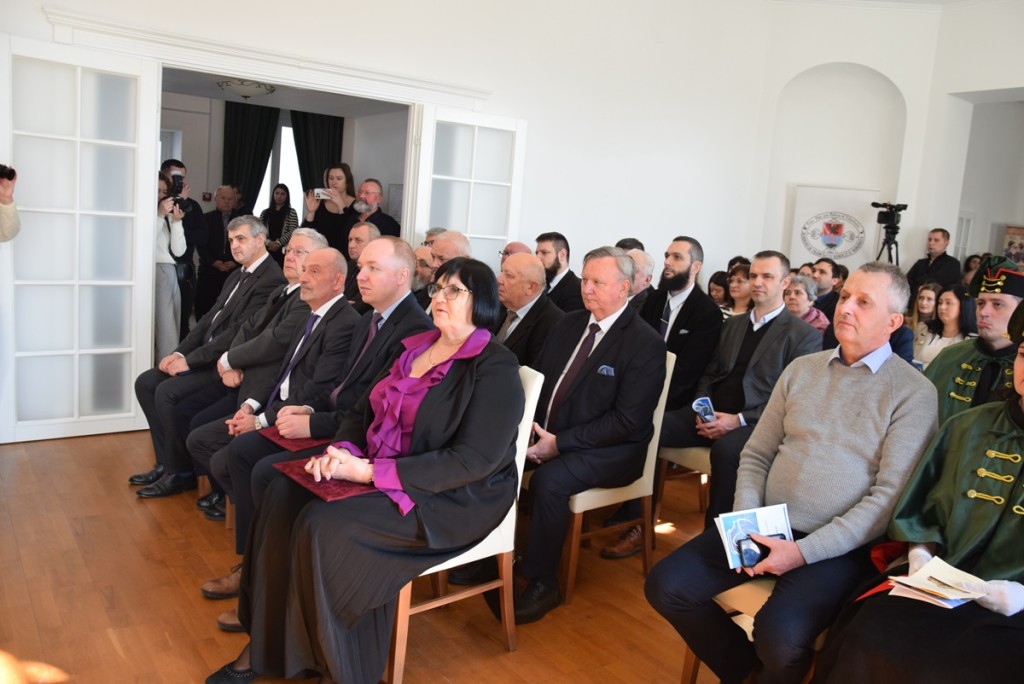
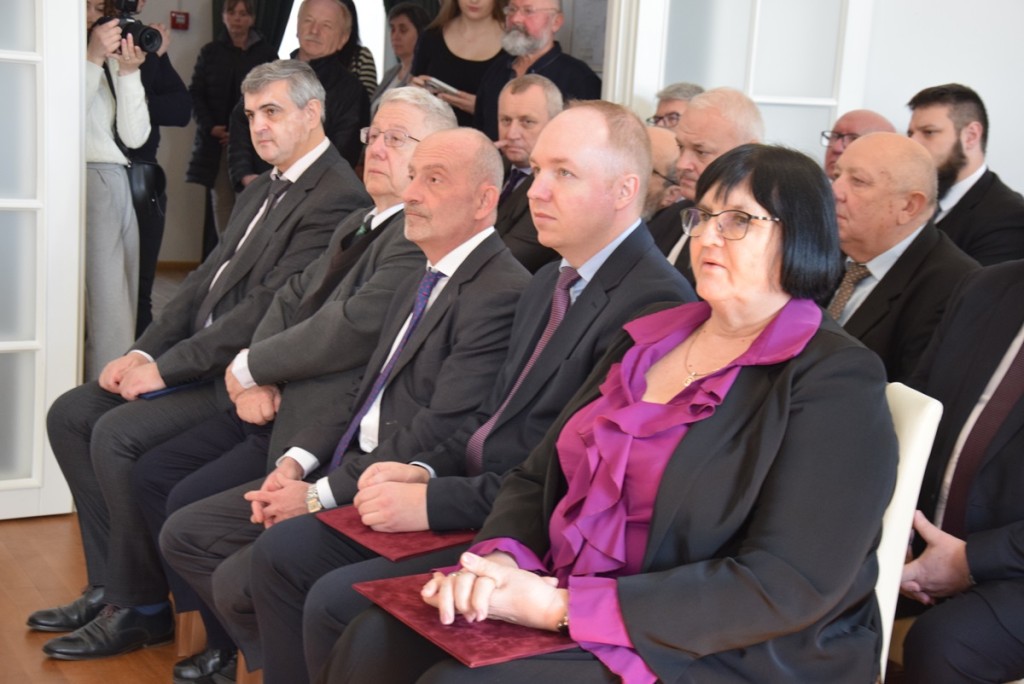
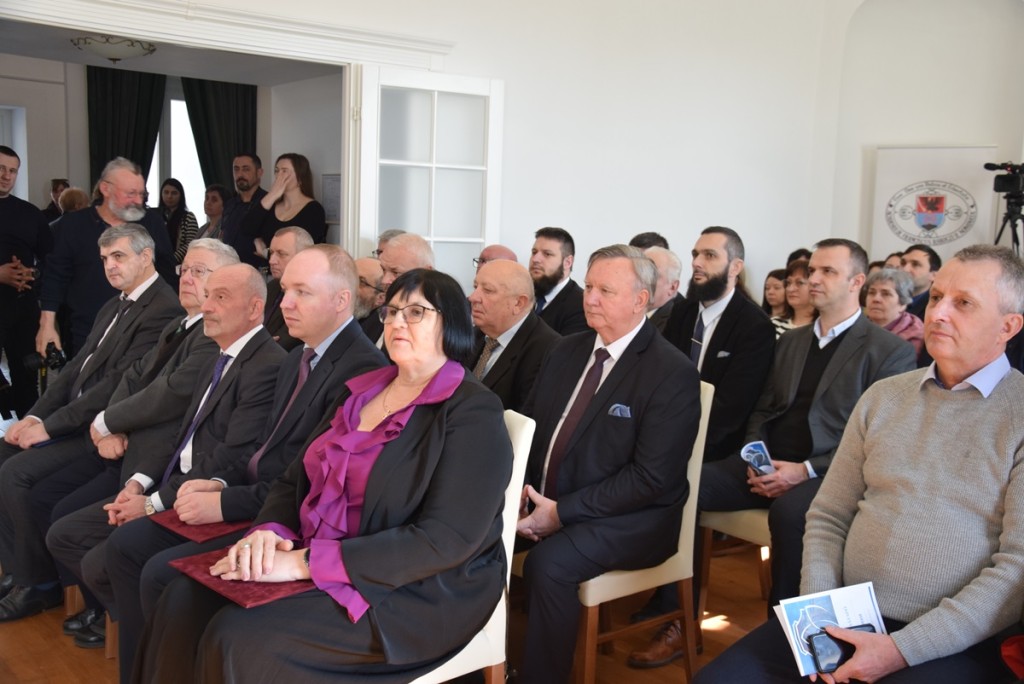
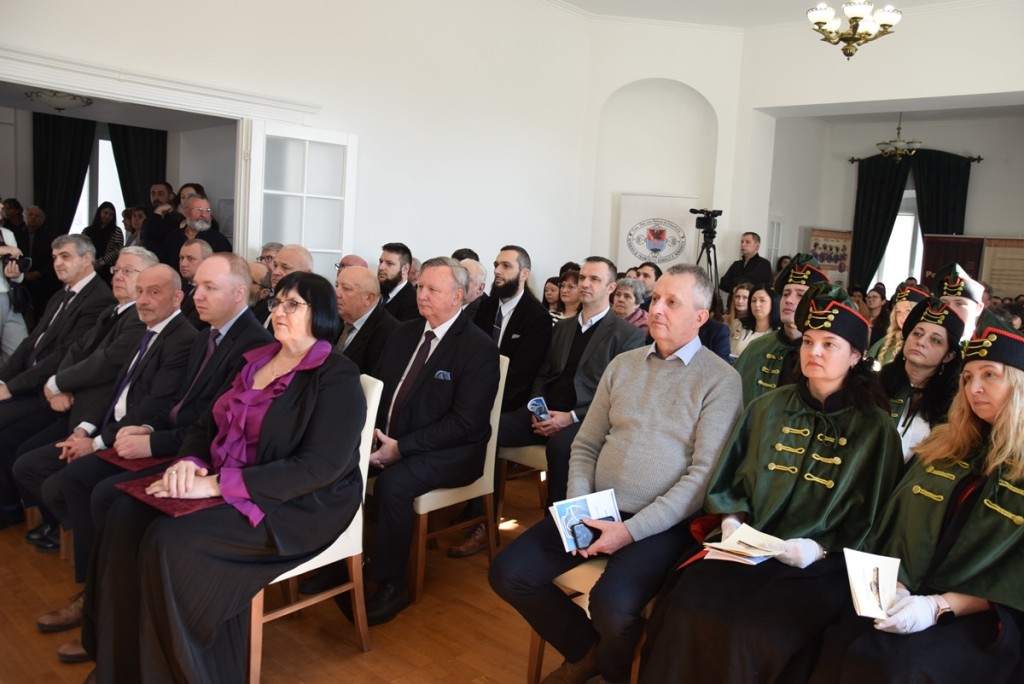
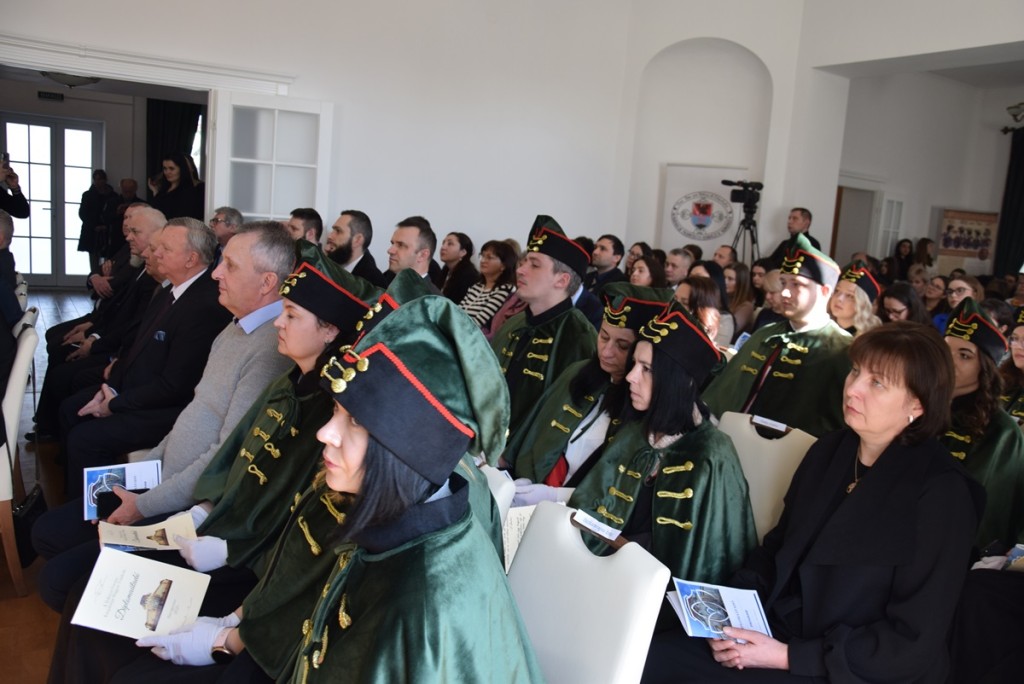
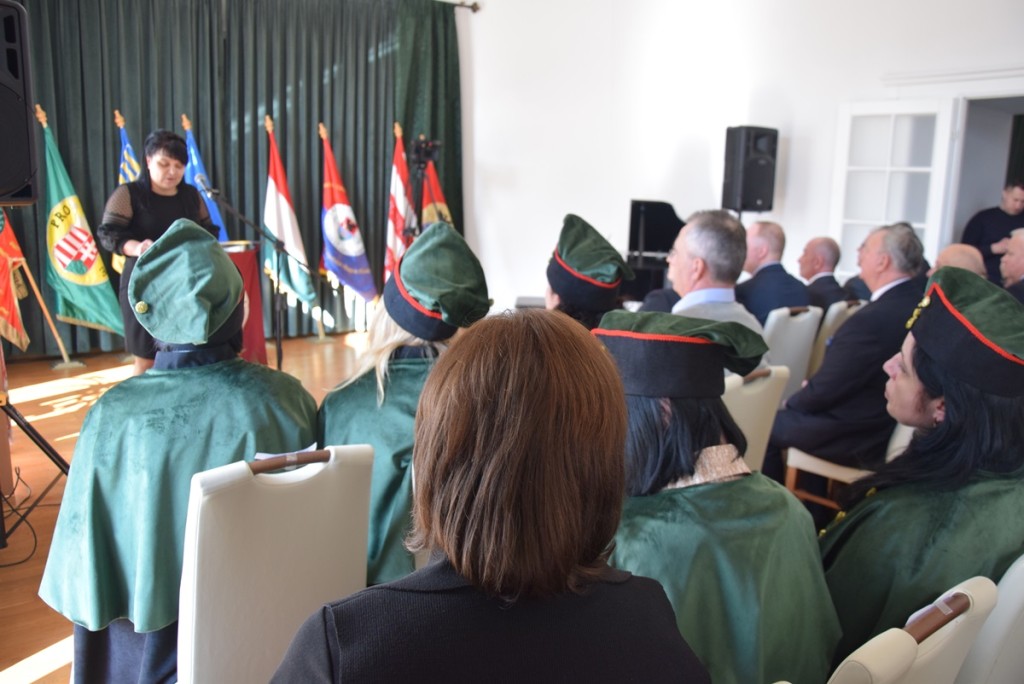
István Csernicskó, the rector of our college, began his welcoming speech with a story about the American novelist Ernest Hemingway, who survived a plane crash, served as an ambulance driver during World War I, worked as a war correspondent during the Spanish Civil War, and did not shy away from danger and adventure even during the World War II.
“All this proves that Hemingway was intimately familiar with war. In his work For Whom the Bell Tolls, he writes: “Never think that war, no matter how necessary or justified, is not a crime.” Ukraine has been at war for nearly three years now; it is high time for peace. The fact that we are here today, presenting diplomas certifying the attainment of master’s degrees to young, fresh graduates, proves that here at the Ferenc Rákóczi II Transcarpathian Hungarian College of Higher Education, we do not believe in destruction or devastation, but in peaceful construction, thorough knowledge, and diligent work,’
he said.
He further added that our institution, while participating in the care of internally displaced persons within Ukraine and providing mental and social support to our staff and students with family members serving on the front lines, focuses not on hatred but consistently on laying the foundations for the future. In this spirit, the institution has continued to develop even during the past three years of war. Today, 68% of our lecturers hold a PhD or Doctor of Science degree, and the proportion of associate professors and professors has reached 45%. We are not merely transmitters of knowledge; thanks to the seven departments and three research centers operating at the college, we are also producers of knowledge, and we integrate the results of our research into our teaching. Our integration into the Ukrainian and international higher education space allows us to operate not as a closed-off, provincial institution, but as one that drives the region’s higher education forward through our innovative initiatives. Our progressive achievements are confirmed by national higher education rankings as well. In a ranking based on the admission scores and results of first-year students in 2024, the college achieved the 82nd position out of 363 higher education institutions. In another ranking, which evaluates 129 private universities and colleges in Ukraine based on different criteria, the Rákóczi College ranked 9th in terms of performance indicators in 2024. All of this was possible because our college is an institution that does not believe in war or destruction, but in the future. It invests in education.
The rector concluded his speech with a line from Mór Jókai’s novel A jövő század regénye:
“Knowledge is the only treasure that cannot be stolen.”
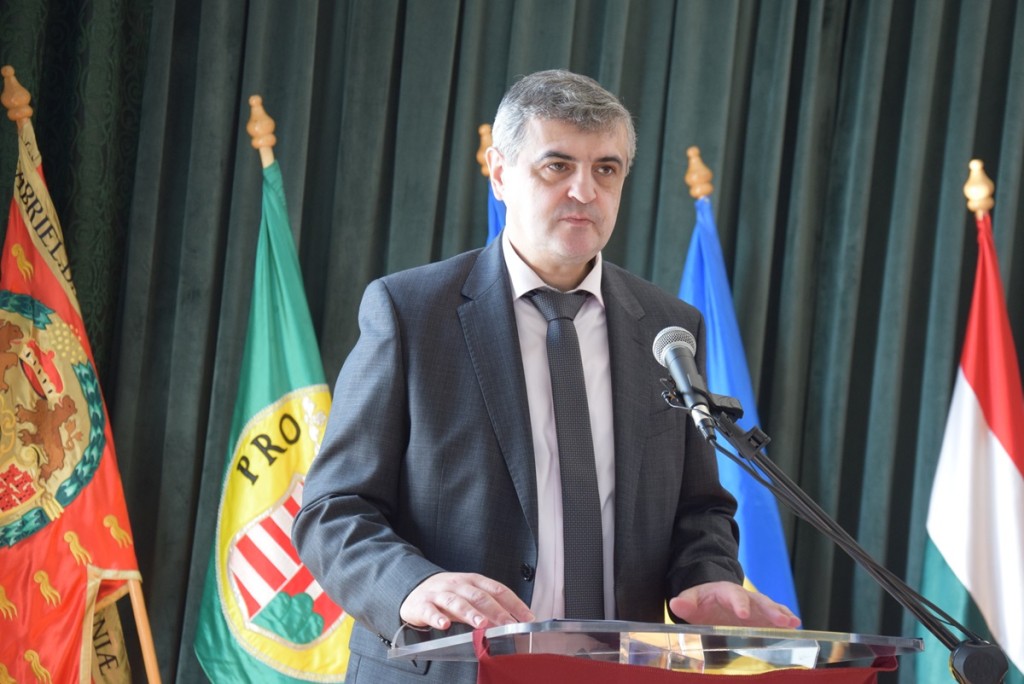
He was followed by Ágnes Bíró, a student of the Zoltán Kodály Fine Arts School in Beregszász, a special prize winner of the Virtuosos classical music talent competition’s pre-selection round for participants beyond the borders. She performed Sándor Szokolay’s piece Hüvelyk Matyi on the piano. Her mentor was Szvetlána Barna.
“Today marks a memorable turning point in your lives, as you will soon hold your well-deserved diplomas in your hands—an achievement you can rightfully be proud of. By reaching this day, you have set a goal for yourselves that was truly worth the effort. The key to achieving set goals lies in perseverance, diligence, and the desire to learn, alongside talent and its nurturing,”
said Gergely Pálmai, Deputy State Secretary responsible for vocational training at the Ministry of Culture and Innovation. He emphasized that Hungarian vocational education now has a measurable and assessable shared history with Rákóczi College, as the Mátészalka Vocational Training Center took on the task at the end of 2018 to support Hungarian-language vocational training beyond the borders and to involve Hungarian youth from across the border in the innovation processes taking place in Hungarian vocational education. As a result, on November 30, 2018, the Center and the Ferenc Rákóczi II Transcarpathian Hungarian College of Higher Education in Beregszász signed a declaration of intent for cooperation.
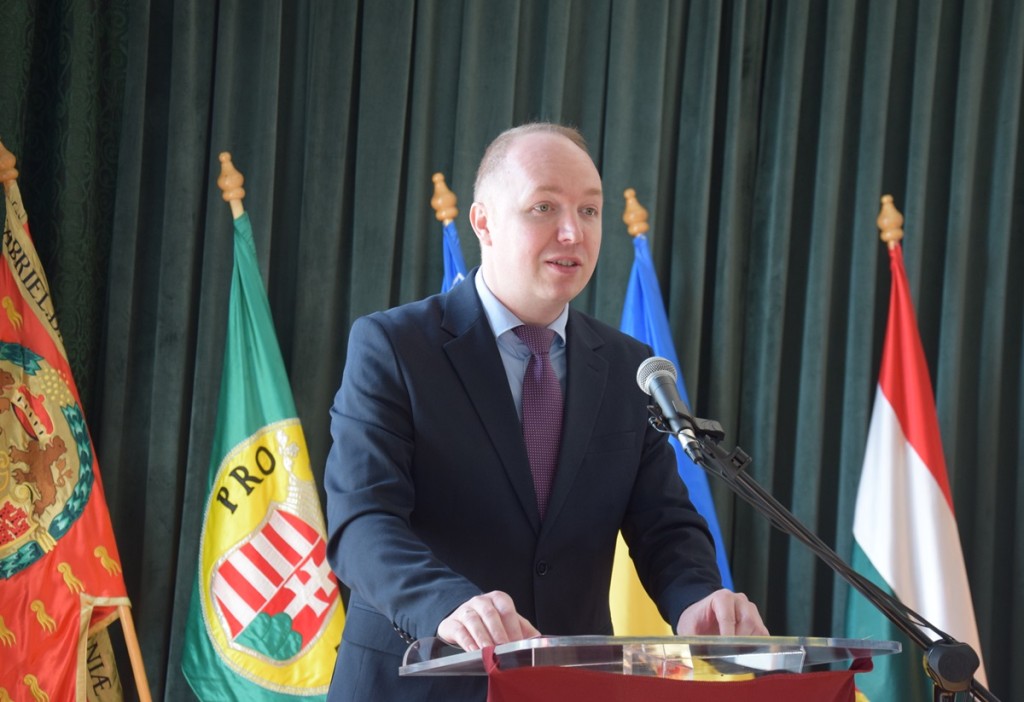
“We knew that this could significantly increase the efficiency and competitiveness of Hungarian-language educational courses beyond the borders and contribute to ensuring that young people receiving education in Hungarian enter the labor market with marketable professional knowledge. Our cooperation also serves to strengthen Hungarian communities beyond the borders,”
he added.
He was followed by Fanni Pallagi, a student of the Art School in Kaszony and a special prize winner of the Virtuosos classical music talent competition’s pre-selection round for participants beyond the borders. She performed Joseph Haydn’s Sonata in G Major on the piano, under the guidance of her mentor, Vivien Farkas.
Following this, on behalf of the graduating students, Violetta Simon, a student of the Accounting and Taxation program, expressed her gratitude. She was then followed by Zsófia Klárikova, a student of the Zoltán Kodály Fine Arts School in Beregszász and a special prize winner of the Virtuosos classical music talent competition’s pre-selection round for participants beyond the borders. She performed Ukrainian Humoresque by Phillip Brill on the saxophone. Her mentor was Terézia Turjanica, and her concertmaster was Mária Roszoha.
After this, the students took their oath, which was recited by Adrienn Ádám, a graduate of the Education and Pedagogical Sciences program.
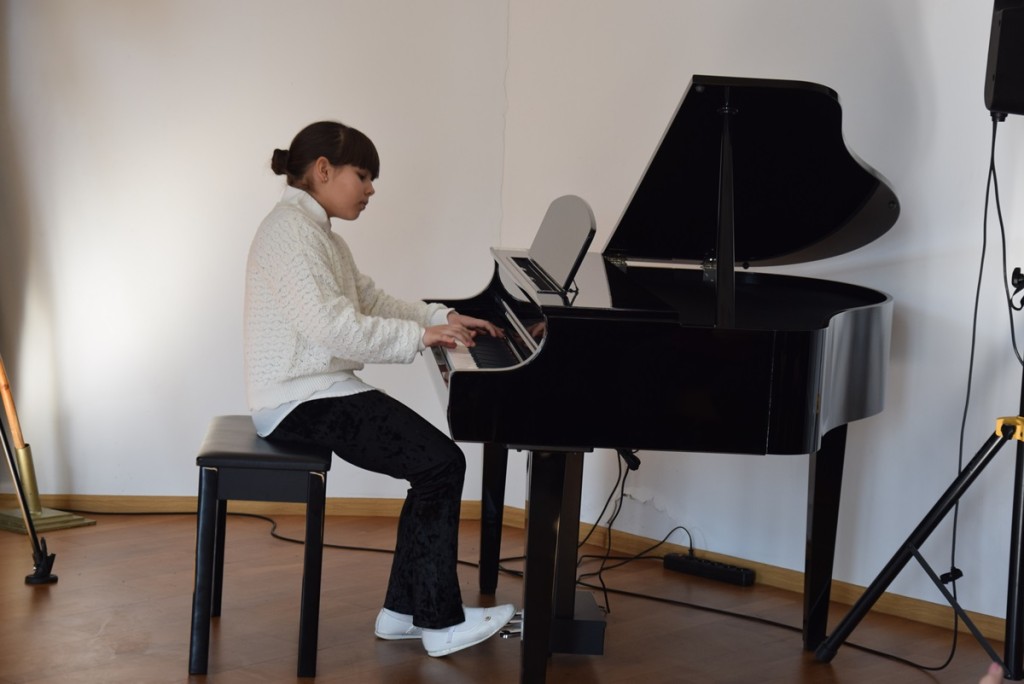
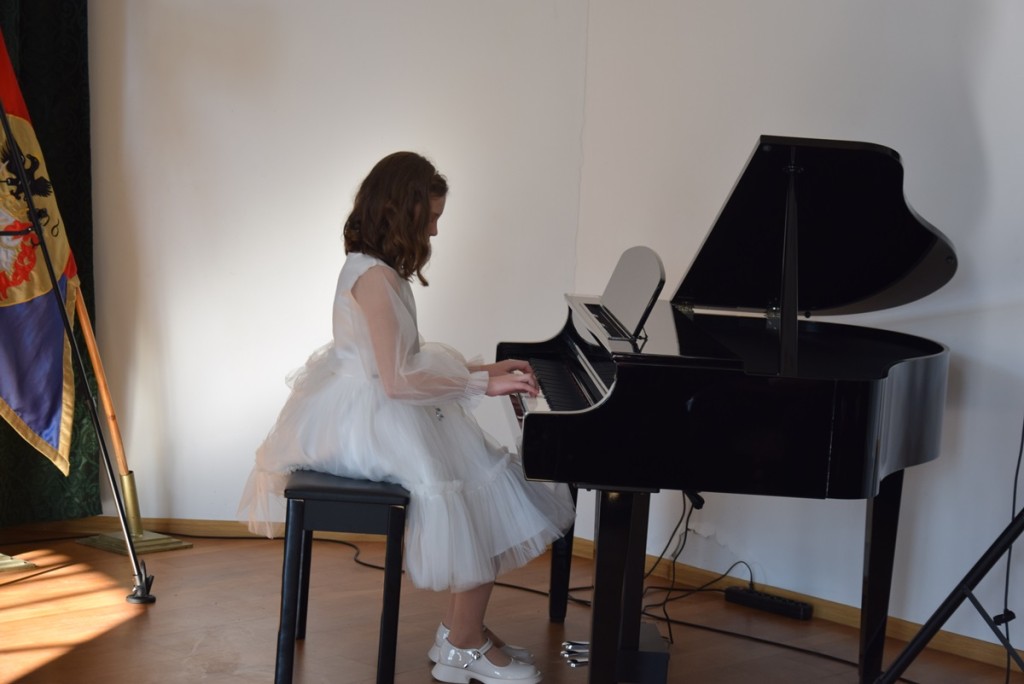
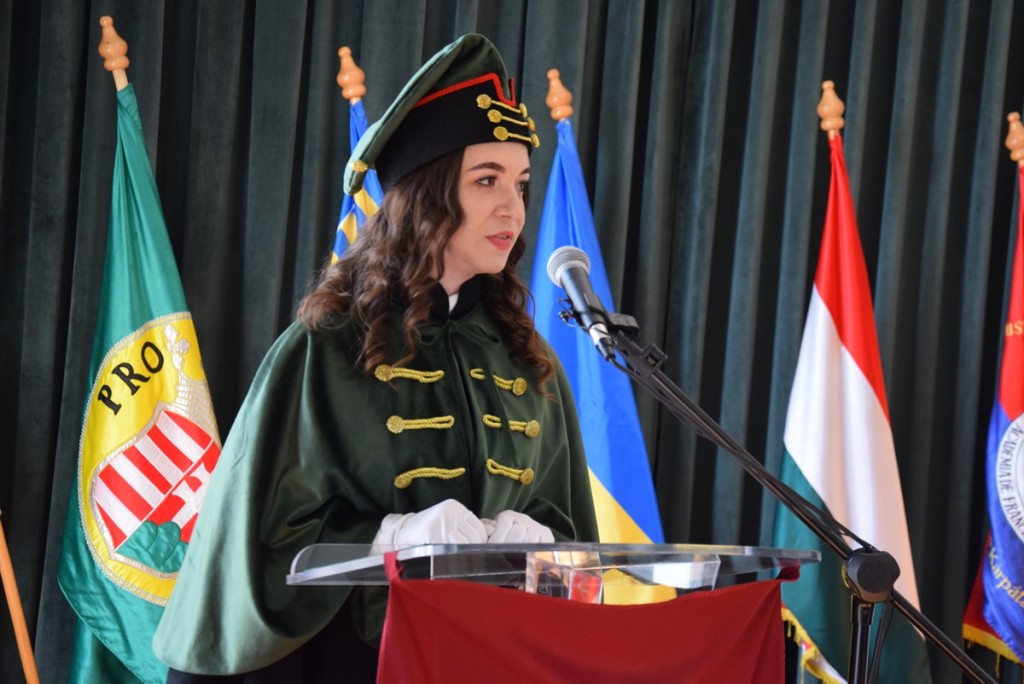
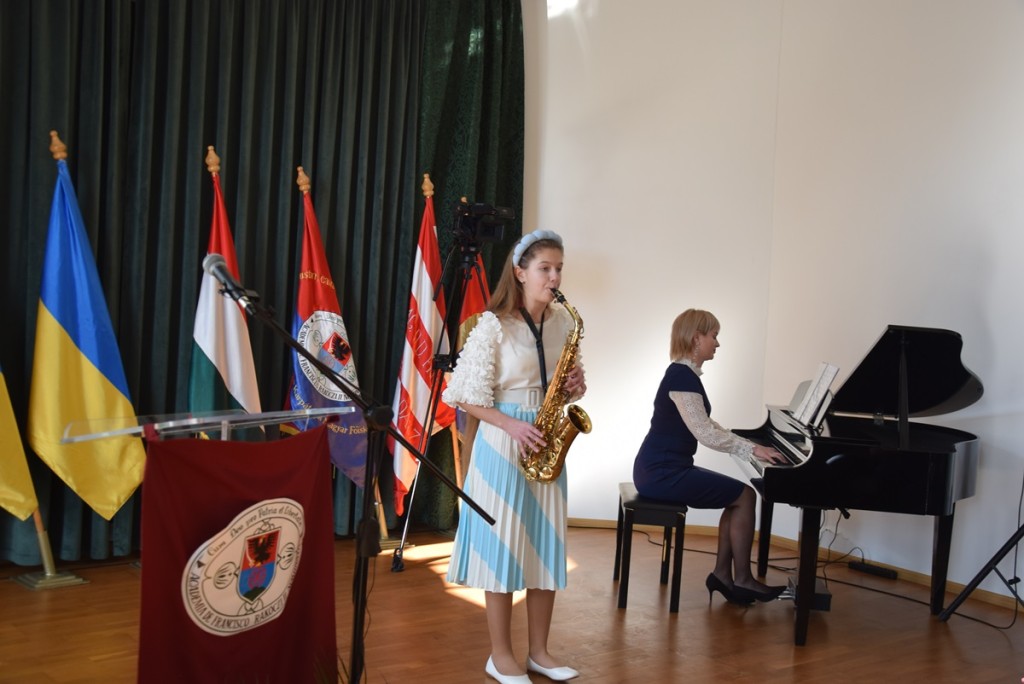
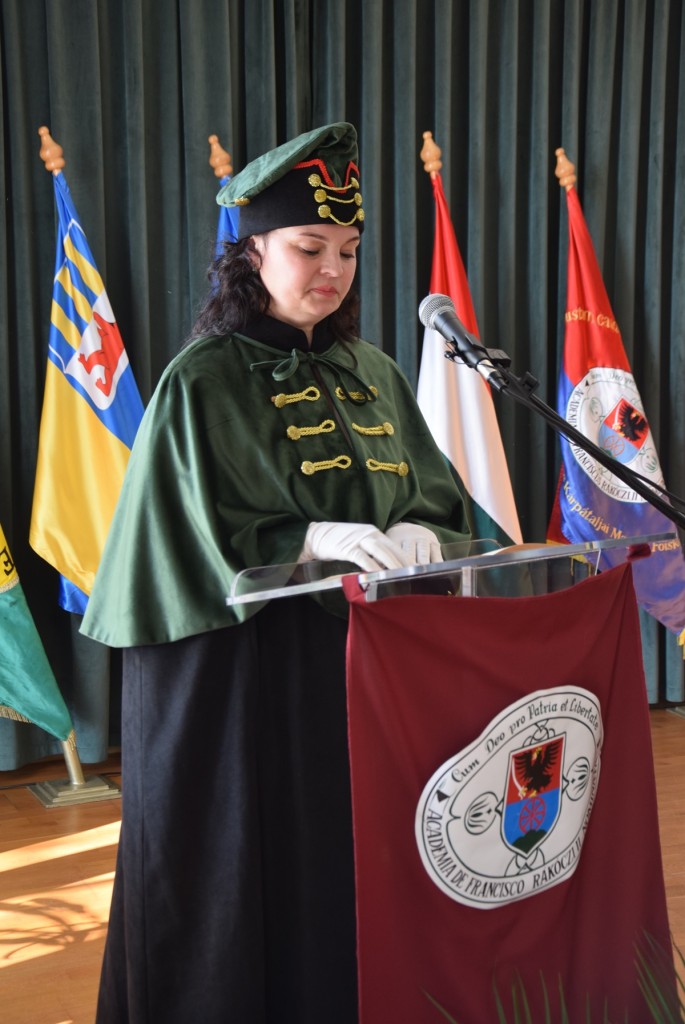
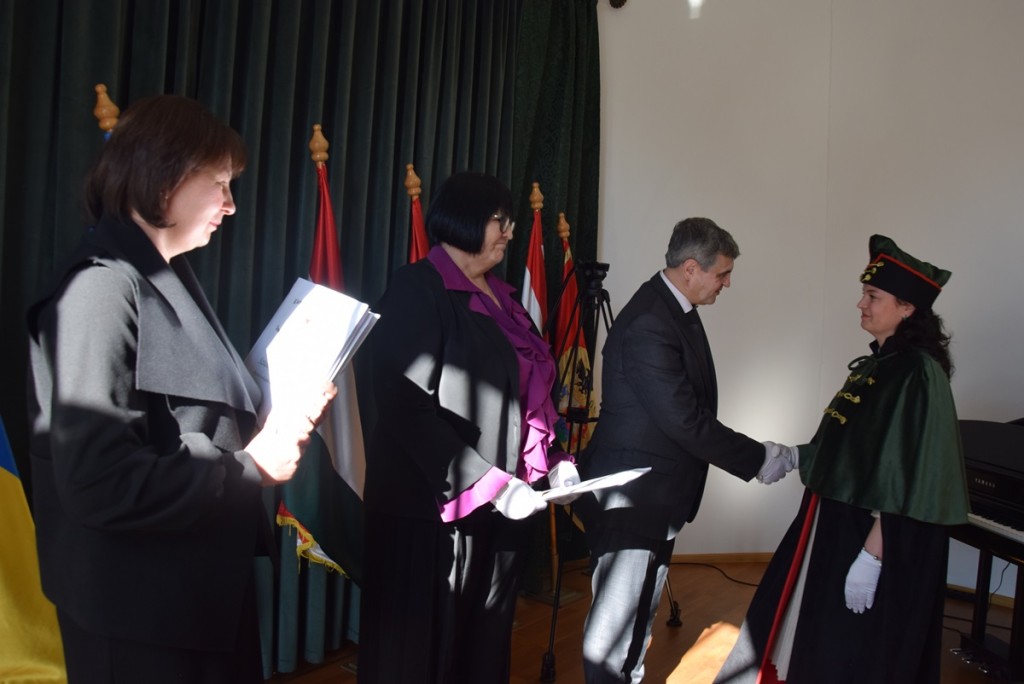
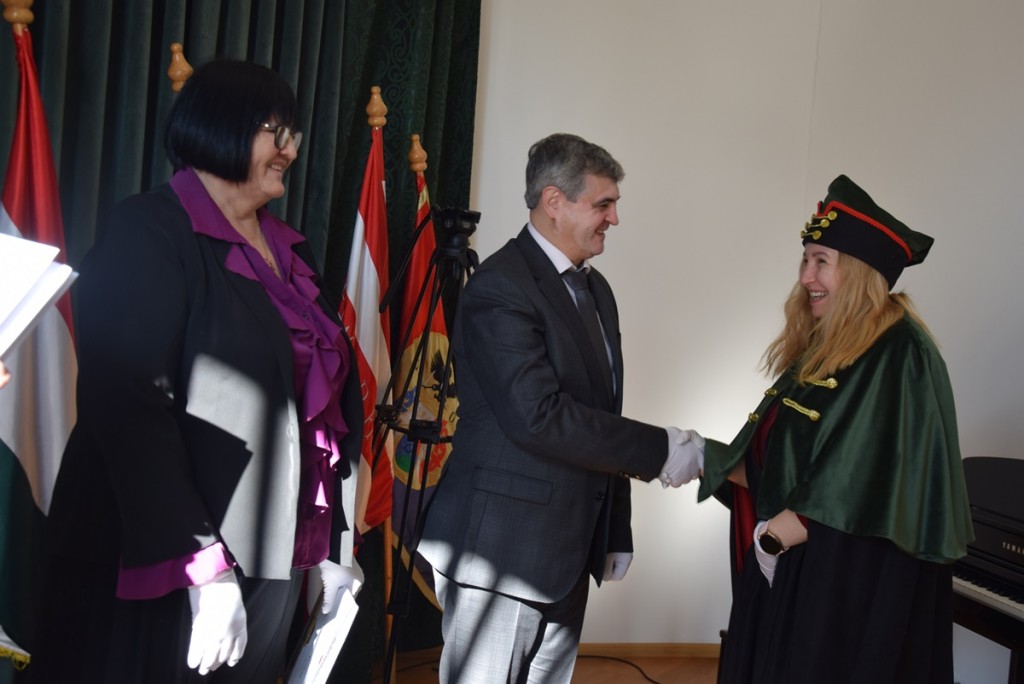
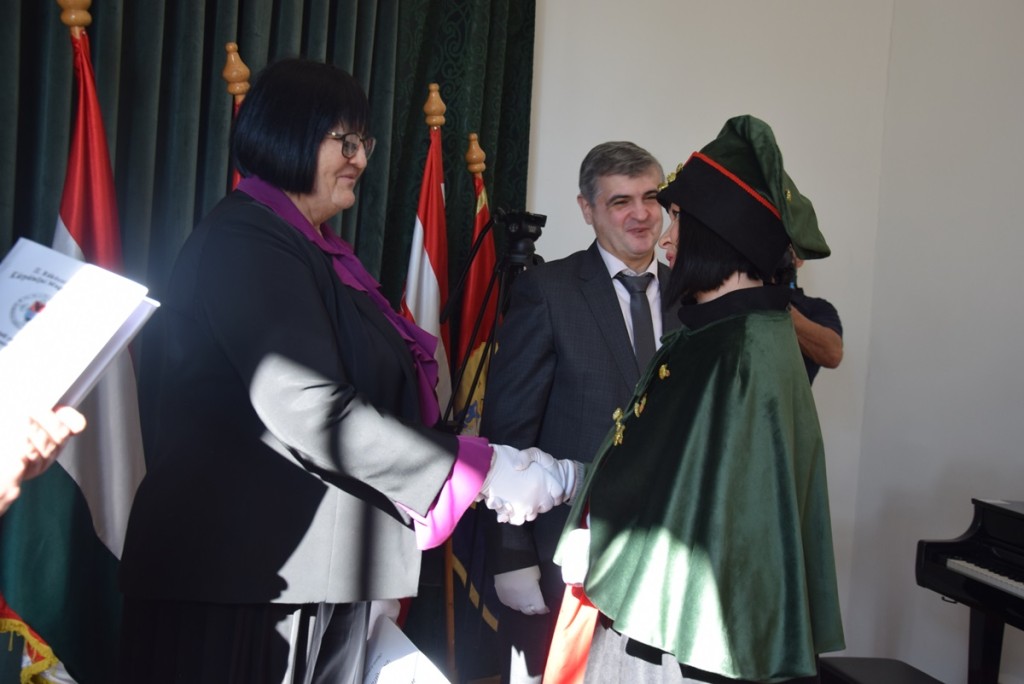
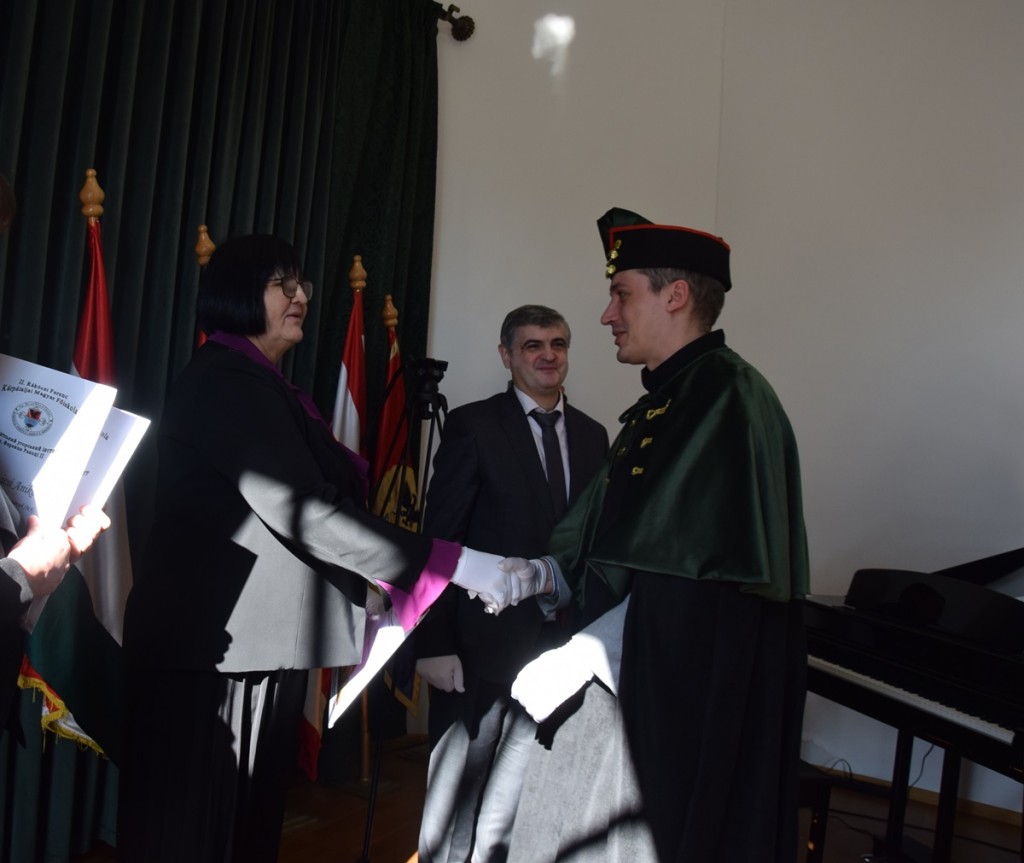
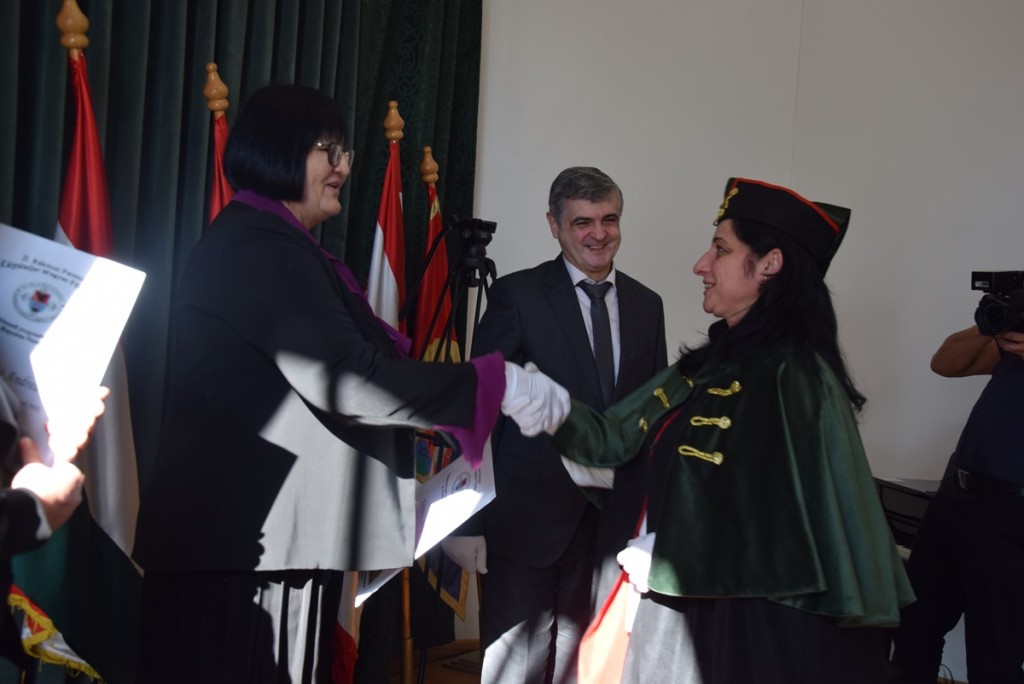
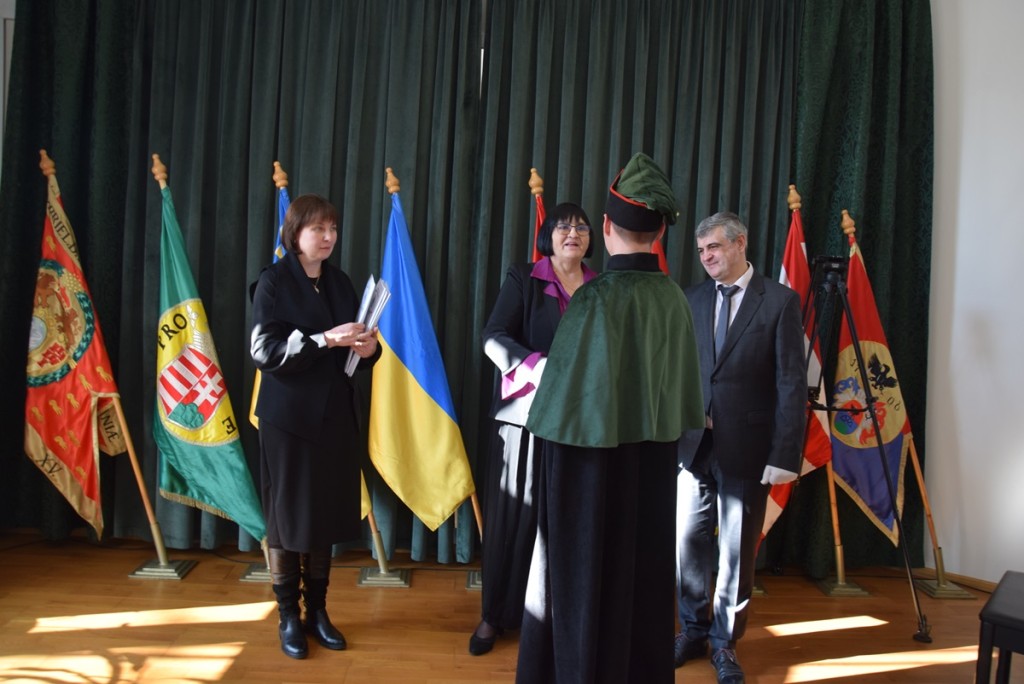
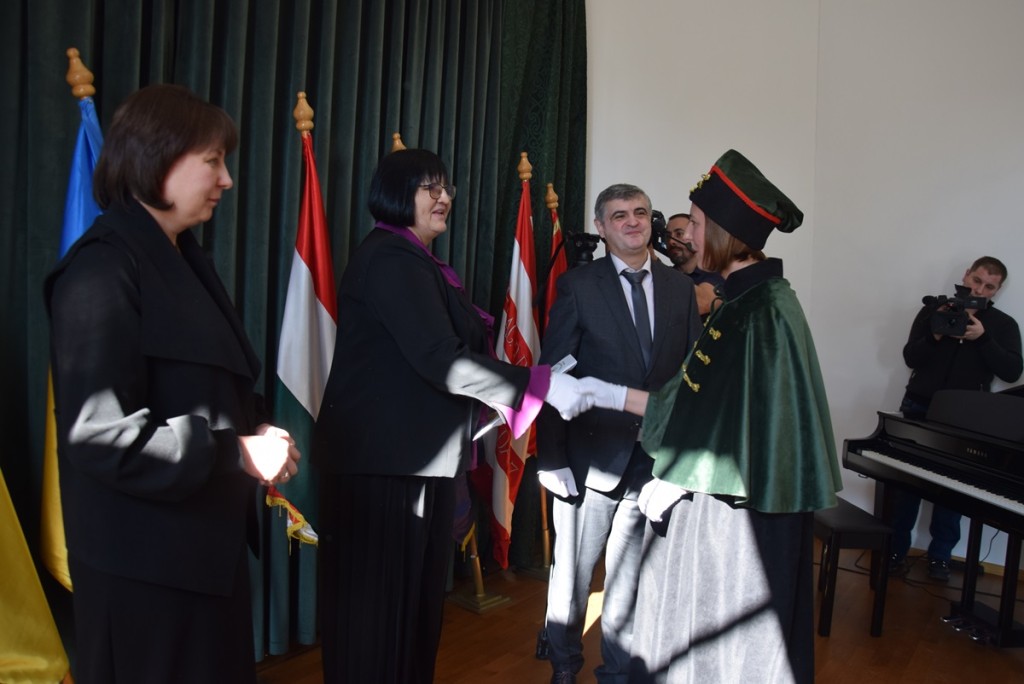
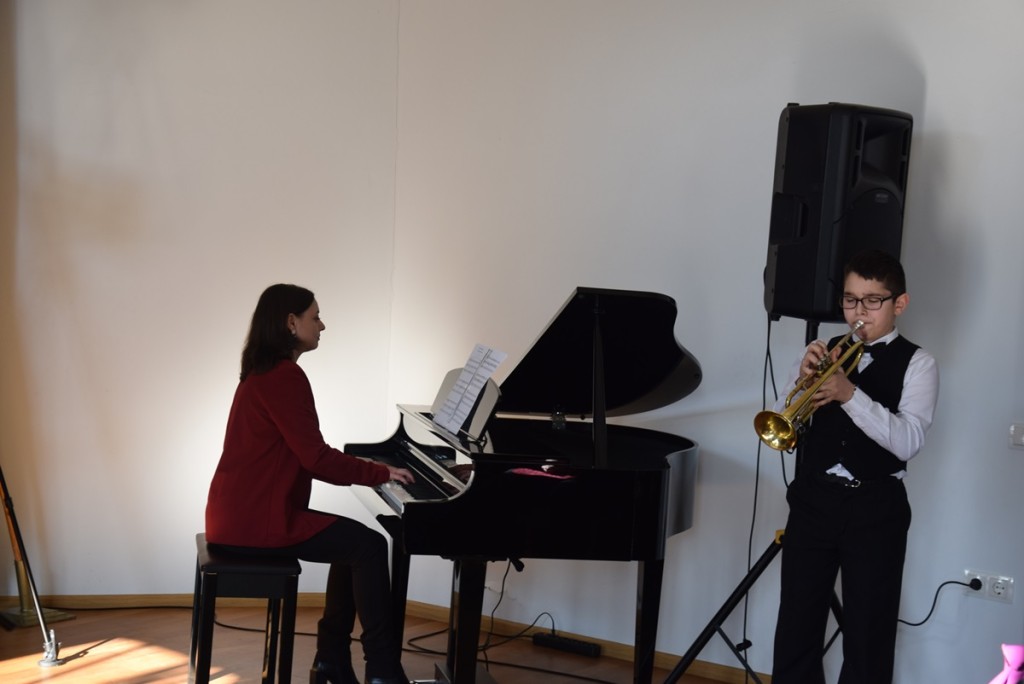
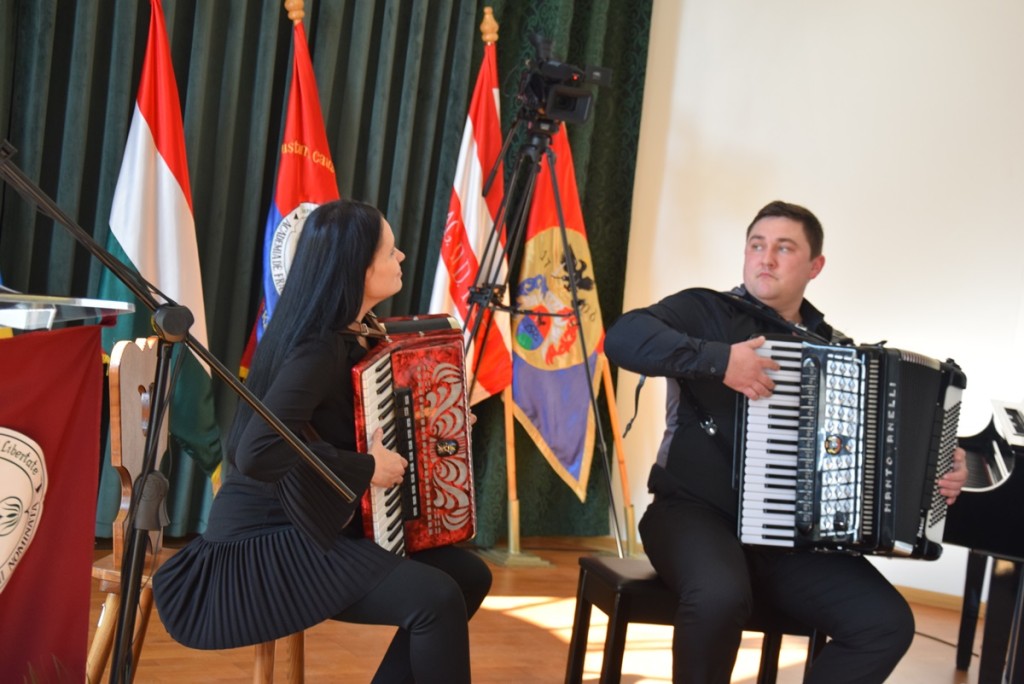
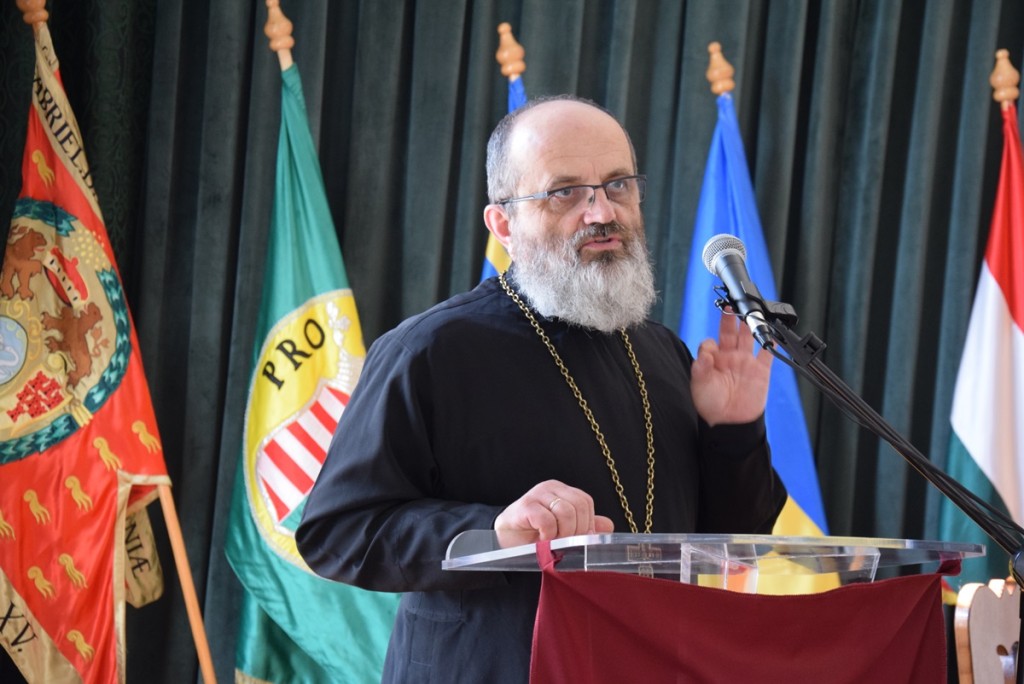
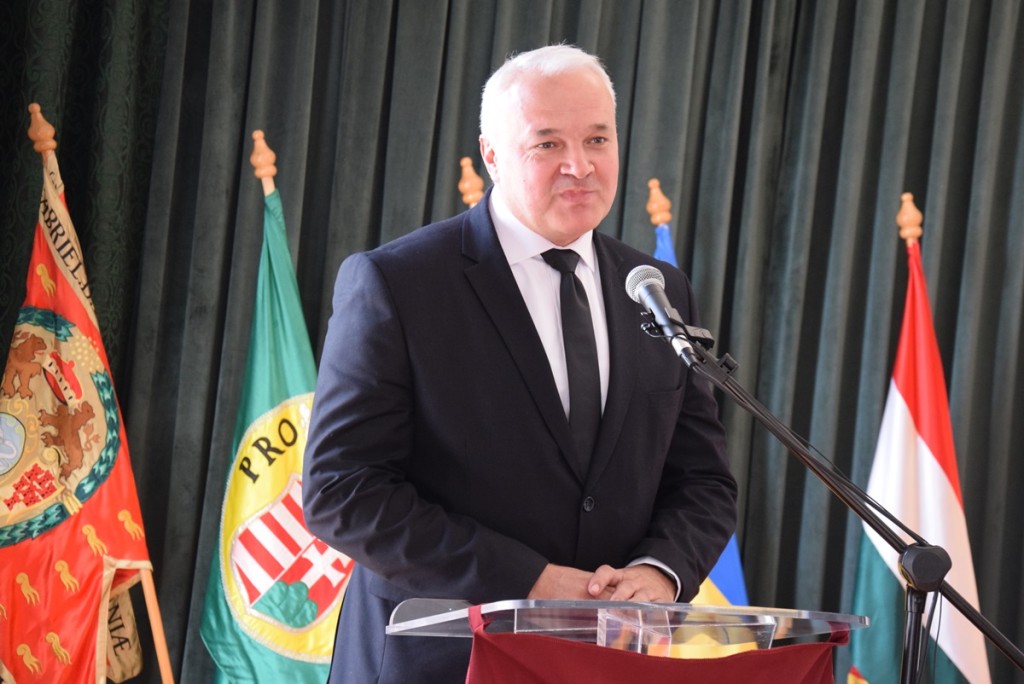
After the general presentation of the diplomas, the graduates received their well-deserved certificates from Ildikó Orosz, president of the Rákóczi College, and István Csernicskó. Following this, the student anthem was played.
“In our fast-paced century, everything and everyone renews annually, making lifelong learning inevitable. Those who have found their career paths strive to practice them as successfully as possible, eagerly embracing the latest advancements in their fields. For them, this is not a burden but a game, a joy. I wish that today does not mark the end of learning in your lives but rather the beginning of a continuous pursuit of knowledge and growth,”
emphasized Ildikó Orosz, and concluded her speech with the words of Sándor Kányádi: “Who understands and makes others understand, gives life to a nation.”
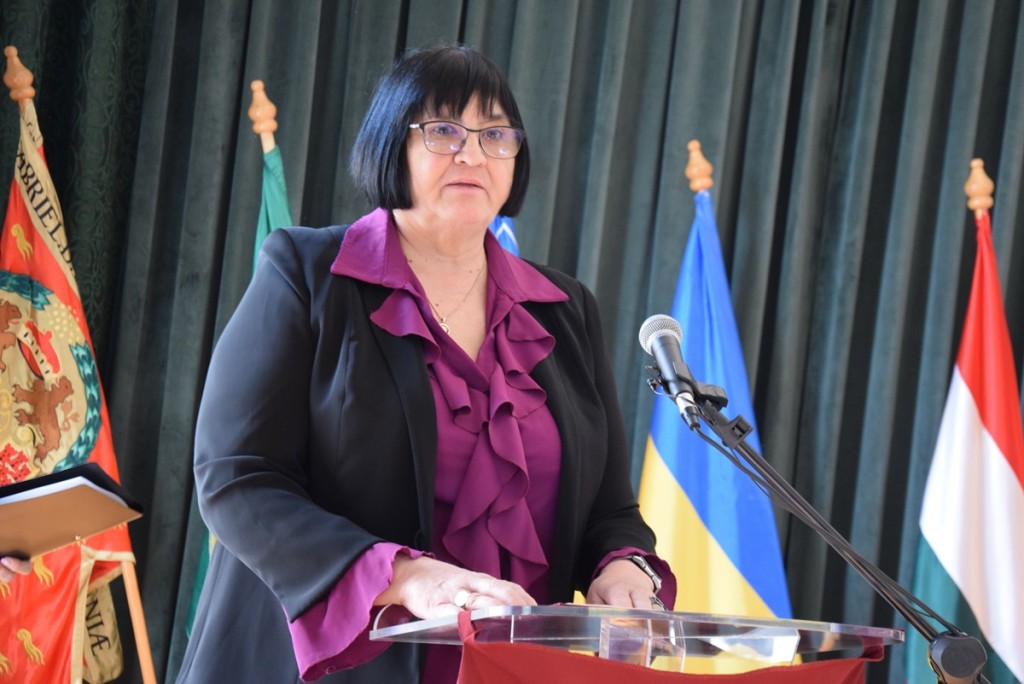
He was followed by Dániel-Miklós Szülek, a student of the Zoltán Kodály Fine Arts School in Beregszász and a participant in the Virtuosos classical music talent competition’s pre-selection round for participants beyond the borders, who advanced to the Hungarian semifinals. He performed Zsolt Farkas’s piece Sárpilisi Népdalok on the trumpet. His mentor was István Bobály, and his concertmaster was Viktória Pércsi-Kota.
Next, we heard a csárdás performance by Nikoletta Sipos and Bertalan Halász, teachers at the Tulipán Tanoda Hungarian School of Folk Music and Folk Art.
At the end of the event, representatives of the historical churches prayed for God’s blessing upon the lives of those present. The event concluded with the singing of the Szózat.
Anita Kurmay
-
This article is also available in
Українська
Magyar

